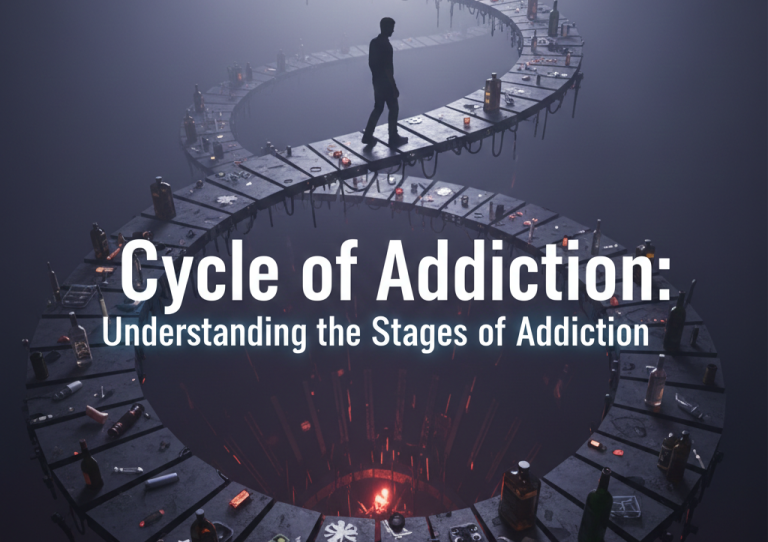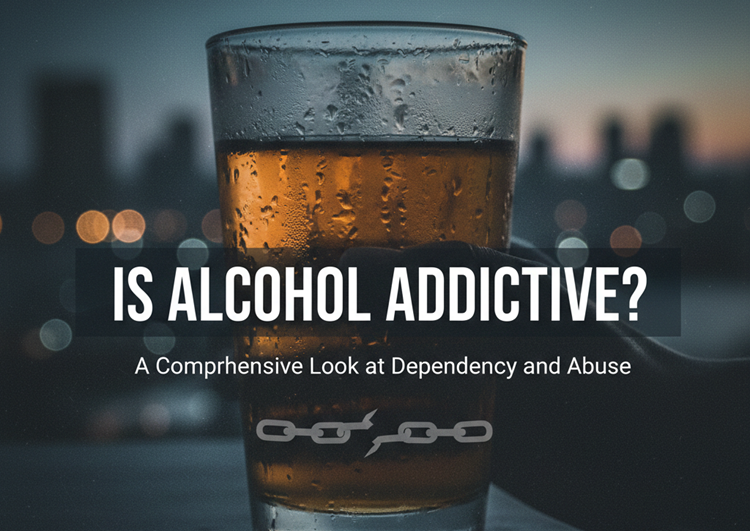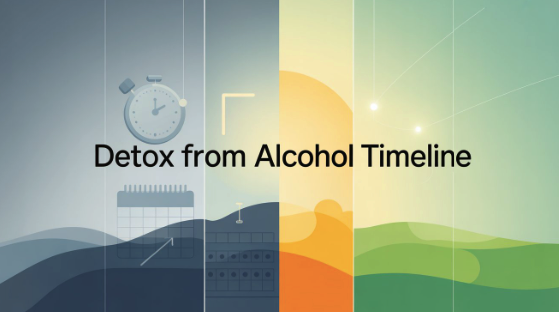Over the past few years, issues of mental health and well-being have raised awareness about substance abuse and addiction. For instance, data from the National Institute on Drug Abuse show that nearly 21 million Americans have at least one addiction, yet only 10% receive treatment. It is important to note the difference between substance use and addiction to identify the symptoms and seek the necessary help.
What is Substance Abuse?
Substance abuse involves the harmful or hazardous use of addictive substances such as alcohol and drugs that are prohibited by law. This refers to its use in a way that leads to severe issues. The use of substances has various effects on physical, mental, and social well-being.

Examples of Commonly Abused Substances
- Alcohol: Often abused because people consider it legal and socially acceptable.
- Marijuana: Often used for its psychotropic properties.
- Prescription Medications: Prescription drugs such as opioids, benzodiazepines, and stimulants are some of the drugs that are commonly abused.
- Illicit Drugs: Drugs such as cocaine, heroin, and others are mostly used due to the heightened impact they have on the human body.
Signs and Symptoms of Substance Abuse
- Physical Symptoms: This may include loss of appetite, changes in sleeping patterns, poor physical coordination, and lack of personal hygiene.
- Behavioral Symptoms: Missed responsibilities, reckless behaviors, legal concerns, and relationship troubles.
- Psychological Symptoms: Mood swings, irritation, anxiety, and depression.
Short-term and Long-term Effects
- Short-term Effects: It may also cause euphoria, increased energy, and relaxation and can result in nausea, confusion, and impaired judgment.
- Long-term Effects: The health risks include liver disease, heart ailments, and mental disorders; legal and social issues; and a potential gateway to addiction.
Understanding Addiction
Addiction is defined as a chronic disease that involves the compulsive use of substances despite the negative impact. It is a chemical and functional disorder of the brain which makes it difficult to cure.

Physical vs. Psychological Dependence
- Physical Dependence: The physical changes that take place in the body that make an individual develop tolerance and withdrawal symptoms for a particular substance.
- Psychological Dependence: The psychological need for it and craving that leads to using the substance to deal with stress or other psychological problems.
Signs and Symptoms of Addiction
- Physical Symptoms: Craving (a need for more of the substance to get the same effect), withdrawal symptoms, and disregard of health.
- Behavioral Symptoms: Failure to quit using the substance, using a lot of time and energy in acquiring the substance, and relying on the substance even when there are adverse outcomes.
- Psychological Symptoms: Craving for the substance, using it as a way to avoid the world and reality, and altering behavior.
Impact on Life
- Health: Chronic diseases, mental health disorders, and higher susceptibility to infectious diseases.
- Relationships: Loss of intimacy and trust in close and working relationships.
- Employment: Job loss, decreased productivity, and financial instability.
Key Differences Between Substance Abuse and Addiction
Substance abuse and addiction have a small, but important difference between them as the former only involves the use of alcohol and drugs, as opposed to addiction which involves the physical dependency on drugs.
Distinguishing between substance use and substance dependency is useful in deciding on the recommended treatment kind and care.
Behavioral Patterns
- Substance Abuse: Usually it is linked with recreational or experimental consumption, which can hardly be regarded as compulsive or frequent. It can still be somewhat controlled by the individual himself.
- Addiction: It comes with compulsive behavior, the inability to cease using the substance irrespective of adverse effects on the substance user.
Control and Compulsion
- Substance Abuse: It is often the case that the user has some degree of control over their substance use.
- Addiction: The user feels cravings for using the substance and cannot resist using the substance.
Health Implications
- Substance Abuse: They might result in health complications in the long run, though they are not as serious as those related to substance dependency.
- Addiction: This is the underlying basis of considerable and frequently serious issues including chronic diseases and mental health disorders.
Treatment Approaches
- Substance Abuse: For symptom management, they may opt for behavioral interventions, education, or support so as not to be promoted to addiction.
- Addiction: Since addiction is a long-term disease, it needs treatment that involves detoxification, medication, therapy, and follow-up care.
The Progression from Substance Abuse to Addiction
Different people have different reactions to substance abuse and at times what results from substance abuse is addiction, but not all those who use substances are addicted. Understanding the risk factors and stages of progression is essential for prevention and early intervention.
Risk Factors
- Genetic Predisposition: According to gender, ethnicity, and geographical location, if a person has a family history of addiction, his/her chances of becoming addicted also rise.
- Environmental Factors: The temptation of having friends and having to deal with stressful situations that expose them to substances from a tender age.
- Psychological Factors: Due to stress, injuries, and other diseases, one may suffer from mental health disorders, trauma, and chronic stress.
Stages of Progression
- Experimentation: Taking it due to curiosity or the influence of peers who would have encouraged you to take it.
- Regular Use: It sounds more like the use of CWS is increasing, though not as utilized as a basic web page and that use is still limited.
- Risky Use: The substance in risky circumstances or adverse effects being felt.
- Dependence: The consequences of having and using drugs, such as learning to become tolerant and feeling withdrawal symptoms.
- Addiction: Obsession lack of control and recurrent behavior even when the results are disastrous.
Preventive Measures
- Education: Giving information about spoons on the danger of taking substances and being an addicted person.
- Early Intervention: Knowing when there is substance use and coming up with the relevant interventions.
- Support Systems: Another possible care scenario is the need to bolster the roles and relationships of the family and the community members.
Seeking Help and Treatment
Approval of social vulnerability and seeking treatment for addiction or substance abuse disorder are fundamental to going through the recovery process.

Recognizing the Need for Help
Signs that indicate it’s time to seek help include:
- Lack/ loss of control over substance.
- Suffering penalties in various domains of life.
- Withdrawal symptoms when not using the substance.
- Inability to control the desire for the substance and recurring thoughts about it.
Types of Treatment
- Detoxification: Out-patient medical supervision to keep withdrawal symptoms under control.
- Medication: Anticipated drugs to decrease the likelihood of the patient using narcotics/ opioids and to alleviate the side effects of withdrawal.
- Therapy: Psychotherapy that includes cognitive-behavioral therapy, counseling, and support groups.
- Rehabilitation Programs: Hospital inpatient or outpatient care that encompasses all aspects of the client’s treatment plan.
Recovery Journey
They may need ongoing help and support to recover because recovery is not something that happens within a short time only. It involves:
- Relapse Prevention: Ways of dealing with situations that provoke episodes and techniques to prevent relapses.
- Support Networks: Family, friends, and support groups are very vital in this.
- Continuous Care: Scheduling of psychotherapy sessions and follow-up consultations with physicians.
It is important to learn the difference between substance abuse and addiction to identify the symptoms and know when to seek help. Substance abuse does not necessarily lead to addiction; the cycle can be broken through education, prevention, and early treatment.
If you or someone you know is struggling with substance abuse, don’t hesitate to seek help and begin the journey toward recovery with Orlando Treatment Solutions. For information, call us at (321) 415-3213 today.



























